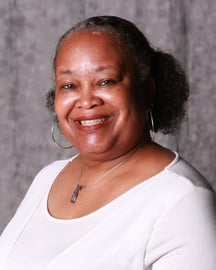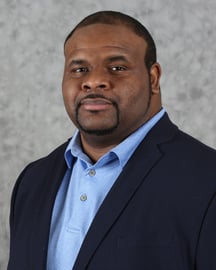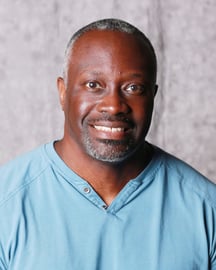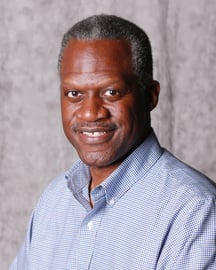- About
- Academics
- Admissions & Aid
- Life
- Research
- News & Events
- Inauguration & Founder's Week
Program at a glance
THE FUTURE AT YOUR FINGERTIPS
Department
The primary goal of the computer science program at Morehouse is to prepare the student for graduate studies in computer science and entry into the workforce as a computer professional at the highest level possible.
Learn More
Bachelor of Science in Computer Science
The computer science program is designed to provide a broad introduction to the field within the context of liberal arts education. Many of the courses emphasize the interrelationships between computer science and other disciplines.
Learn More
Bachelor of Software Engineering
The Morehouse Software Engineering Program drives technological innovation by developing the next generation of leaders. We focus on state-of-the-art engineering methods, emergent technologies, and the solutions needed to address the construction of large-scale computer systems and software applications in the real world.
Learn More
About Computer Science
-
Overview
Overview
The primary goal of the computer science program at Morehouse is to prepare the student for graduate studies in computer science and entry into the workforce as a computer professional at the highest level possible. The program has a continuing commitment to develop students with a fundamental appreciation for computing issues. The computer science program emphasizes the acquisition of marketable knowledge and skills for professional careers in areas such as computer systems, programming languages, software engineering, artificial intelligence, and databases.
The computer science program is designed to provide a broad introduction to the field within the context of liberal arts education. Many of the courses emphasize the interrelationships between computer science and other disciplines. Students select course sequences that will allow them to combine studies in computer science with their interest in other areas. The program is sensitive to the fluid nature of the field of computer science and is flexible enough to respond to the rapidly changing developments in the field. While majors share many of the same courses, the liberal arts orientation of the program is intended to permit the student the opportunity to design a specific course of study that suits this particular interest.
Students should consult with a departmental advisor about their course selections after they decide to become computer science majors. The goal is to make a coherent selection of lower- and upper-division courses.
-
Outcomes
Outcomes
Students who successfully complete the degree requirements for computer science will:
- Be able to understand and apply fundamental knowledge of computational and mathematical concepts needed to solve problems of practical interest
- Demonstrate proficiency in analyzing, designing, building, and implementing computer-based systems designed to solve practical problems and meet needs in engineering and technology
- Develop an awareness of the implications of the role that computing and technological advances play in contemporary society
-
Earn the Major
BACHELOR OF SCIENCE IN COMPUTER SCIENCE
MAJOR COURSE OF STUDY REQUIREMENTS
The following courses are required for the B.S. computer science degree: HCSC 106,110, 160, 260, 285, 310, 311, 361, 375, 410, 415, 435, and 461.
The following mathematics courses are required: HMTH 161, 162, 271, 253, and 341. One sequence from the following three-course options in science is required:
- HBIO 113, HPHY154, HPHY 253
- HPHY 154, HBIO 111, HBIO 112
- HBIO 113, HPHY 154, HCHEM 111
General Education (Core)
33-48 hoursRefer to the general education requirements for more information.
Computer Science Major — 67 hours
- HCSC 106— Introduction to Computer Science
- HCSC 110— Computer Programming I
- HCSC 160— Computer Programming II
- HCSC 260— Computer Organization
- HCSC 285— Discrete Structures
- HCSC 310— Data Structures and Algorithm Analysis
- HCSC 311— Introduction to Theory of Computation
- HCSC 361— Junior Seminar
- HCSC 375— Operating Systems
- HCSC 410— Database Systems
- HCSC 415— Organization of Programming Languages
- HCSC 435— Software Engineering
- HCSC 461— Senior Seminar
- HCSC 4xx— Computer Science Elective I
- HCSC 4xx— Computer Science Elective II
- HCSC 4xx— Computer Science Elective III
- HMTH 161— Calculus I
- HMTH 162— Calculus II
- HMTH 271— Linear Algebra
- HMTH 253— Set Theory
- HMTH 341— Probability and Statistics
One sequence from the following three-course options
in science is required:Option I
- HBIO 113— General Biology
- HPHY 154— Mechanics
- HPHY 253— Electricity and Magnetism
Option II
- HBIO 111— General Biology
- HBIO 112— General Biology
- HPHY 154— Mechanics
Option III
- HBIO 113— General Biology
- HCHEM 111— Elementary Inorganic Chemistry
- HPHY 154— Mechanics
-
Earn the Minor
MINOR IN DATA SCIENCE AND ANALYTICS
The goals of the DSA Minor are to prepare students for the increasing workplace challenges in obtaining, processing, analyzing, and presenting complex data. The DSA Minor helps students in different disciplines leverage data science to solve practical problems in their area of expertise. Students in the program are expected to acquire practical aspects of the methods and theory of data science, gain literacy and fluency in data science methods, and understand their implications for society.
DSA Minor Requirements
Eighteen hours (6 courses) would be required for the minor. These requirements will include one foundations course, two methods courses, two electives, and an experiential learning course in the student’s area of study. To begin, all minors will be required to enroll in Data and the African Diaspora (HCSC 105).
At least 12 credit hours of the minor must be outside of the course requirements for any major or other minor the student is pursuing.
Area I: Foundations
One required foundational course (3 hours): HCSC 105 Data and the African Diaspora
Area 2: Mathematics and Statistics
One of the following mathematics and/or statistics courses (3 hours): HMTH 130 Basic Statistics, HMTH 341 Probability & Statistics I, HECO 221 Basic Statistics, and HBA 228 Data Analytics & Modeling
Area 3: Programming
One of the following programming courses (3 hours): HCSC 110 Computer Programming I (C++), SCIS 111/111L Discovering Computer Science (Python), or HCSC 112 R Programming (R/RStudio)*
Area 4: Capstone
One required capstone course (3 hours): HCSC 411 Data Science I
Area 5: Electives
Two elective courses (6 hours), see the list of course options for electives below:
Morehouse College Eligible Electives
HBA 228 Data Analytics and Modeling
HBA 462 Marketing and Research
HBIO 199 Interdisciplinary Research
HBIO 340 Biostatistics
HBIO 350 Bioinformatics
HCSC 106 Introduction to Computer Science
HCSC 110 Computer Programming I
HCSC 160 Computer Programming II
HCSC 285 Discrete Structures
HCSC 310 Data Structure and Algorithm Analysis
HCSC 410 Database Systems
HCSC 425 Artificial Intelligence
HCSC 450 High-Performing Scientific Computing
HECO 321 Principles of Econometrics
HMTH 271 Introduction to Linear Algebra
HMTH 341 Probability and Statistics I
HMTH 342 Probability and Statistics II
HPSY 210 Research Methods in Statistics
HPSC 253/253L Scope and Methods in Political Science and Lab
HSOC 302 Research Methods
HSOC 403 Survey Research and Data Analysis
Clark Atlanta University Eligible Electives
CCIS 223/223L Data Structures and Lab
CCIS 400 Fundamentals of GIS
CCIS 416 Introduction to Higher Performance Computing
CCIS 434 Machine Learning
CCIS 474 Database Systems
CCIS 475 Artificial Intelligence
CMAT 322 Mathematical Probability and Statistics II
CMAT 440 Numerical Analysis
CBUS 434 Enterprise Integration Applications
CBUS 436 Data Mining and Visualization
CBUS 454 Financial Analysis for Decision Making
CBUS 470 Database Management
CBUS 474 Logistics Management
Spelman College Eligible Electives
SAVC 280 Innovation, Technology and Art
SECO 303 Econometrics
SENG 390 Writing and Editing for Digital Media
SREL 340 Religion, Archival Research and Black Women in US Civil Rightsrehouse.edu -
CStoCMPE Program
About the Program
Overview
The CStoCMPE is a partnership between Morehouse College and the Georgia Tech College of Electrical and Computer Engineering (ECE). It allows students majoring in computer science at Morehouse College to simultaneously take courses at Georgia Tech in Computer Engineering, with the goal of acquiring degrees from both institutions. Historically, students could pursue degrees from both institutions through the Dual Degree Engineering Program, however, the requirements of this program require more credit hours to complete than CStoCMPE. Programming will be implemented to support students interested in the program before they start their undergraduate programs. The partnership's intended outcome is to meet the demand for a skilled and diverse workforce in semiconductor production.
Structure of the Partnership
- Students in the program would major in Computer Science at Morehouse, with the goal of transferring to Computer Engineering at Georgia Tech and earning two bachelor’s of science degrees.
- Morehouse will provide transportation accommodations for students to physically get to Georgia Tech for courses while at Morehouse
- Georgia Tech will share opportunities with participating students while at Morehouse
- Both Morehouse and Georgia Tech will collaborate on outreach activities for pre-college students interested in the program.
- Both Morehouse and Georgia Tech will collaborate to monitor student progress and provide academic support
Points of ContactMorehouse: Kinnis Gosha, PhD (kinnis.gosha@morehouse.edu)
Georgia Tech: Laura Sams Haynes, PhD (laura.haynes@ece.gatech.edu)
and Elliot Moore II, PhD (em80@gatech.edu)
Overview
The primary goal of the computer science program at Morehouse is to prepare the student for graduate studies in computer science and entry into the workforce as a computer professional at the highest level possible. The program has a continuing commitment to develop students with a fundamental appreciation for computing issues. The computer science program emphasizes the acquisition of marketable knowledge and skills for professional careers in areas such as computer systems, programming languages, software engineering, artificial intelligence, and databases.
The computer science program is designed to provide a broad introduction to the field within the context of liberal arts education. Many of the courses emphasize the interrelationships between computer science and other disciplines. Students select course sequences that will allow them to combine studies in computer science with their interest in other areas. The program is sensitive to the fluid nature of the field of computer science and is flexible enough to respond to the rapidly changing developments in the field. While majors share many of the same courses, the liberal arts orientation of the program is intended to permit the student the opportunity to design a specific course of study that suits this particular interest.
Students should consult with a departmental advisor about their course selections after they decide to become computer science majors. The goal is to make a coherent selection of lower- and upper-division courses.
Outcomes
Students who successfully complete the degree requirements for computer science will:
- Be able to understand and apply fundamental knowledge of computational and mathematical concepts needed to solve problems of practical interest
- Demonstrate proficiency in analyzing, designing, building, and implementing computer-based systems designed to solve practical problems and meet needs in engineering and technology
- Develop an awareness of the implications of the role that computing and technological advances play in contemporary society
BACHELOR OF SCIENCE IN COMPUTER SCIENCE
MAJOR COURSE OF STUDY REQUIREMENTS
The following courses are required for the B.S. computer science degree: HCSC 106,110, 160, 260, 285, 310, 311, 361, 375, 410, 415, 435, and 461.
The following mathematics courses are required: HMTH 161, 162, 271, 253, and 341. One sequence from the following three-course options in science is required:
- HBIO 113, HPHY154, HPHY 253
- HPHY 154, HBIO 111, HBIO 112
- HBIO 113, HPHY 154, HCHEM 111
General Education (Core)
33-48 hours
Refer to the general education requirements for more information.
Computer Science Major — 67 hours
- HCSC 106— Introduction to Computer Science
- HCSC 110— Computer Programming I
- HCSC 160— Computer Programming II
- HCSC 260— Computer Organization
- HCSC 285— Discrete Structures
- HCSC 310— Data Structures and Algorithm Analysis
- HCSC 311— Introduction to Theory of Computation
- HCSC 361— Junior Seminar
- HCSC 375— Operating Systems
- HCSC 410— Database Systems
- HCSC 415— Organization of Programming Languages
- HCSC 435— Software Engineering
- HCSC 461— Senior Seminar
- HCSC 4xx— Computer Science Elective I
- HCSC 4xx— Computer Science Elective II
- HCSC 4xx— Computer Science Elective III
- HMTH 161— Calculus I
- HMTH 162— Calculus II
- HMTH 271— Linear Algebra
- HMTH 253— Set Theory
- HMTH 341— Probability and Statistics
One sequence from the following three-course options
in science is required:
Option I
- HBIO 113— General Biology
- HPHY 154— Mechanics
- HPHY 253— Electricity and Magnetism
Option II
- HBIO 111— General Biology
- HBIO 112— General Biology
- HPHY 154— Mechanics
Option III
- HBIO 113— General Biology
- HCHEM 111— Elementary Inorganic Chemistry
- HPHY 154— Mechanics
MINOR IN DATA SCIENCE AND ANALYTICS
The goals of the DSA Minor are to prepare students for the increasing workplace challenges in obtaining, processing, analyzing, and presenting complex data. The DSA Minor helps students in different disciplines leverage data science to solve practical problems in their area of expertise. Students in the program are expected to acquire practical aspects of the methods and theory of data science, gain literacy and fluency in data science methods, and understand their implications for society.
DSA Minor Requirements
Eighteen hours (6 courses) would be required for the minor. These requirements will include one foundations course, two methods courses, two electives, and an experiential learning course in the student’s area of study. To begin, all minors will be required to enroll in Data and the African Diaspora (HCSC 105).
At least 12 credit hours of the minor must be outside of the course requirements for any major or other minor the student is pursuing.
Area I: Foundations
One required foundational course (3 hours): HCSC 105 Data and the African Diaspora
Area 2: Mathematics and Statistics
One of the following mathematics and/or statistics courses (3 hours): HMTH 130 Basic Statistics, HMTH 341 Probability & Statistics I, HECO 221 Basic Statistics, and HBA 228 Data Analytics & Modeling
Area 3: Programming
One of the following programming courses (3 hours): HCSC 110 Computer Programming I (C++), SCIS 111/111L Discovering Computer Science (Python), or HCSC 112 R Programming (R/RStudio)*
Area 4: Capstone
One required capstone course (3 hours): HCSC 411 Data Science I
Area 5: Electives
Two elective courses (6 hours), see the list of course options for electives below:
Morehouse College Eligible Electives
HBA 228 Data Analytics and Modeling
HBA 462 Marketing and Research
HBIO 199 Interdisciplinary Research
HBIO 340 Biostatistics
HBIO 350 Bioinformatics
HCSC 106 Introduction to Computer Science
HCSC 110 Computer Programming I
HCSC 160 Computer Programming II
HCSC 285 Discrete Structures
HCSC 310 Data Structure and Algorithm Analysis
HCSC 410 Database Systems
HCSC 425 Artificial Intelligence
HCSC 450 High-Performing Scientific Computing
HECO 321 Principles of Econometrics
HMTH 271 Introduction to Linear Algebra
HMTH 341 Probability and Statistics I
HMTH 342 Probability and Statistics II
HPSY 210 Research Methods in Statistics
HPSC 253/253L Scope and Methods in Political Science and Lab
HSOC 302 Research Methods
HSOC 403 Survey Research and Data Analysis
Clark Atlanta University Eligible Electives
CCIS 223/223L Data Structures and Lab
CCIS 400 Fundamentals of GIS
CCIS 416 Introduction to Higher Performance Computing
CCIS 434 Machine Learning
CCIS 474 Database Systems
CCIS 475 Artificial Intelligence
CMAT 322 Mathematical Probability and Statistics II
CMAT 440 Numerical Analysis
CBUS 434 Enterprise Integration Applications
CBUS 436 Data Mining and Visualization
CBUS 454 Financial Analysis for Decision Making
CBUS 470 Database Management
CBUS 474 Logistics Management
Spelman College Eligible Electives
SAVC 280 Innovation, Technology and Art
SECO 303 Econometrics
SENG 390 Writing and Editing for Digital Media
SREL 340 Religion, Archival Research and Black Women in US Civil Rightsrehouse.edu
About the Program
Overview
The CStoCMPE is a partnership between Morehouse College and the Georgia Tech College of Electrical and Computer Engineering (ECE). It allows students majoring in computer science at Morehouse College to simultaneously take courses at Georgia Tech in Computer Engineering, with the goal of acquiring degrees from both institutions. Historically, students could pursue degrees from both institutions through the Dual Degree Engineering Program, however, the requirements of this program require more credit hours to complete than CStoCMPE. Programming will be implemented to support students interested in the program before they start their undergraduate programs. The partnership's intended outcome is to meet the demand for a skilled and diverse workforce in semiconductor production.
Structure of the Partnership
- Students in the program would major in Computer Science at Morehouse, with the goal of transferring to Computer Engineering at Georgia Tech and earning two bachelor’s of science degrees.
- Morehouse will provide transportation accommodations for students to physically get to Georgia Tech for courses while at Morehouse
- Georgia Tech will share opportunities with participating students while at Morehouse
- Both Morehouse and Georgia Tech will collaborate on outreach activities for pre-college students interested in the program.
- Both Morehouse and Georgia Tech will collaborate to monitor student progress and provide academic support
Points of Contact
Morehouse: Kinnis Gosha, PhD (kinnis.gosha@morehouse.edu)
Georgia Tech: Laura Sams Haynes, PhD (laura.haynes@ece.gatech.edu)
and Elliot Moore II, PhD (em80@gatech.edu)
Meet Our Faculty and Staff
For more information, contact:
Dr. Kinnis Gosha, Department Chair, Computer Science
Kinnis.Gosha@morehouse.edu
Genesa Williams, Department Coordinator

David Brickler
Assistant Professor

David Cherry
Visiting Assistant Professor

Sonya M. Dennis
Senior Assistant Professor NTT

Kinnis Gosha
Department Chair, Computer Science and Professor

Amos Johnson, Jr.
Associate Professor

Chung W. Ng
Associate Professor

Alfred Watkins
Senior Assistant Professor NTT
